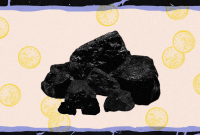Support strong Canadian climate journalism for 2025
This story was originally published by The Guardian and appears here as part of the Climate Desk collaboration.
The production team behind the Little Amal puppet, which raised awareness about the plight of the refugee crisis in Europe, hopes its next project — a herd of animal puppets going on a 20,000-kilometre trek — will start a new global conversation about the climate crisis.
Amir Nizar Zuabi, the Palestinian artist who helped launch the Amal project, said The Herd — which will tour through several African and European cities and feature dozens of puppets — will be a “soft, beautiful evocation to think differently” about the climate crisis.
“Climate change is the biggest story we’re facing now,” said Zuabi. “It’s often presented in terms of emissions and the Kyoto Agreement — people struggle to fathom that, but what Amal did beautifully and what we hope The Herd becomes is a visceral engagement with the issue.”
The Herd will start its journey in West Africa in spring 2025 — the precise point is still to be confirmed. The planned route includes Senegal, Morocco, Gibraltar, Spain, France, the U.K., the Netherlands, Denmark, Sweden and finally Norway.
The “core” herd will contain about 30 puppets representing the migrating animals of the Serengeti, but they will be joined by a “massive migration” of different animals as they arrive in new locations — creating a herd that could swell to many dozens of puppets.
“The idea is that we’re migrating with an ever-evolving, growing group of animals,” said Zuabi.
Little Amal’s journey was created by The Walk Productions in association with Handspring, the South African company behind the War Horse theatre show puppetry. For The Herd, The Walk Productions will work with another South African firm, Ukwanda, to produce the puppets.

Little Amal reached an estimated two billion people (including online interactions) on her 8,000-kilometre journey from Turkey to the U.K., which turned the 3.5-metre high puppet of a nine-year-old Syrian girl into a global icon who even met the Pope. “We hope to reach the other five billion with The Herd,” said Zuabi.
The Palestinian artist said he had been warned that coming to the U.K. “might be tough” because of the intense political debate over migration. “But the people of Folkestone, Dover and Kent more widely were generous and showed up in huge numbers and, of course, there is always a small minority which will shout loudly,” he said. “But I think if people are given the chance to show goodwill, then they will.
“It’s a huge responsibility because we are the voice for a lot of children who don’t have a voice, but it’s also a joy.”
Zuabi sees The Herd as a continuation of the Little Amal project because when he spoke to refugees he met while walking through Europe with the puppet, they would often say drought and climate change were triggering waves of migration.
He said: “We just came back from the U.S. and Mexico. And there, a huge part of the migration crisis is generated by the climate crisis because of failing crops and lack of income.”
Starting The Herd in the Global South will focus attention on the people who are most affected by the climate crisis, said Zuabi, who believes the west often sees the issue through its own myopic filter. “For them, it’s not theoretical, it’s not an exercise in recycling,” he said.
Zuabi grew up in Nazareth and has produced award-winning plays about the aftermath of the Nakba, when Palestinians were expelled from Israel. He says the current conflict needs to be a turning point in the Middle East. “After this atrocity that is unfolding on the ground, I need to hope that we will learn something and evolve into better creatures,” he said. “I need to believe that there is some flicker of hope for a better future for us.
“I think we’re going through a dire time not just for Palestine and Israel because this latest round of violence has unearthed some deep truths about the world. There will be a lot of soul-searching afterwards.”





Comments
This very article starts admirably with a big-picture focus on what is THE priority for our species as a whole, i.e. climate change, but then disappointingly but predictably devolves into a very specific focus on the Palestinian creator's TRIBE who are currently sparking world outrage against Israel as historical occupier now ramped up to massive killer of Palestinian civilians in the war on Gaza where almost half are under 18, compared to the U.S. say, where only 22% are. The majority of the Palestinian tribe is also a subset of the larger TRIBE of Muslims. The definition of tribe is: "a social DIVISION in a TRADITIONAL society," which illustrates the main obstacle before us in the face of climate change.
To use a metaphor, by insisting on living "in the weeds" it may well be where we die as a species, by weirdly, obliviously, and fanatically clinging to our manufactured, cluttered identities above ALL else. Another metaphor is the forests burning down because we simply cannot seem to see them for the trees.
So it's not just coincidental that BOTH the Palestinians and the Israelis are guided by the DICTATES of their respective religious tribes, but despite the utter intractability of the decades long conflict, this root cause is rarely even mentioned.
Of all the "conversations" we're supposed to be having about everything, this extremely salient one seems a rare societal taboo based on a general sense of fairness in that people can't help who they ARE, and shouldn't be castigated for it. In that context, any and all tribal identifiers are conflated with that of RACE, which is wholly inaccurate because it's actually the only one that is truly immutable.